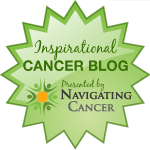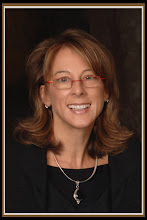The question most of us have is that when is a minor issue a problem that deserves attention. As I mentioned in an earlier post (http://elynjacobs.blogspot.com/2011/07/tamoxifen-friend-or-foe.htm) I have been coughing since December. Could be asthma and allergies, they say, but I am not responding to those meds. So, the question my oncologist and internist (and husband) want to know is why. I blamed the Tamoxifen, and while no one is arguing with me, they still want confirmation that I don’t have some other issue. Since I am phobic about unnecessary tests and drugs, I have put off this question. However, Onc strongly insisted on a chest x-ray and internist says that while that scan was clear, I must see a lung specialist (pulmonologist) as something is not quite right. Super. So I decide to wait until after the hurricane (clever avoidance) but alas, I will go. I have always worried about asbestos exposure, building I worked in during the early 80’s was condemned and asbestos removed. At the time, all I knew is being there made me very ill, despite the fact that I loved the job. I am sure that I kept the makers of Kleenex sitting pretty. Naturally now I wonder if there is a connection to my cancer and that exposure. I also worry about my exposure during 9/11. Sorry, but those who were to protect us lied and assured us all that the air was safe, now we see the truth, and many have suffered and died. My markers have been good, so I am not terribly concerned, but I am concerned that they will order more tests and prescribe more drugs. Ah, I guess it is what it is and in the scheme of things, what can I complain about.
So when is a symptom something to worry about? I’d say when it is persistent and does not respond to remedies. This brings me to today’s guest post by Ben Leer, Outreach Coordinator for the Mesothelioma Center
Asbestos and Mesothelioma
Asbestos was a mineral widely used in manufacturing. It had amazing strength and heat resistant properties. Common household items that contained asbestos products included; paint, dry wall, insulation and flooring. The uses of asbestos were not limited to the household. It was incredibly versatile and found uses in the military, railroads, textile mills, automobile industry and more.
In 1989, the Environmental Protection Agency (EPA) had begun banning and a phasing out existing products that contains asbestos. This was due to an overwhelming amount of evidence that linked asbestos to a cancer called Mesothelioma. Asbestos exposure accounts for 4% of lung cancer cases. The same material that was meant to protect us from fire hazards actually caused cancer. Lung cancer cases occur more than any other cancer. In 2011 there will be an estimated 221,130 new cases with 156,940 deaths.
Mesothelioma occurs when ingested asbestos fibers become lodged in the lining of our organs and irritate the neighboring cells. Our bodies are not well equipped to remove the rigid and strong asbestos fibers. Eventually, this irritation may turn into a tumor which can lead to the growth of cancerous cells. The latency period for this to occur is anywhere between 20-50 years after initial exposure.
The most common form of mesothelioma accounts for around 75% of cases and occurs in the lungs. Symptoms include chest pains, shortness of breath, reduced chest expansion, harsh breathing sounds, dry cough, wheezing, and pleural effusions. Early detection of mesothelioma is a key component to prognosis. Imaging tests such as CT scans, PET scans or MRI’s are common and produce a detailed picture of the progression of the cancer. The real key is prevention. Being able to identify asbestos and avoid becoming exposed.
Many people may have been exposed and may not be aware. Veterans comprise 30% of mesothelioma cases since every branch of the military had used asbestos. Ships, battle cruisers and submarines contained asbestos in the insulation of engine rooms along with several other components. Other occupations that have been exposed to asbestos are shipyard workers, demolition, industrial plants, pipefitters, and machinists.
If you would like more information on asbestos exposure and asbestos related diseases, please feel free to visit the Mesothelioma Center, Twitter or Facebook. You will be able to find over 3000 pages of comprehensive content that is designed to walk a patient through symptoms, diagnosis and prognosis. Additionally, we provide free informational material, as well as direct contact with one of our Patient Advocates.
Elyn Jacobs
**********************************************************
Elyn Jacobs is President of Elyn Jacobs Consulting, Inc. and a breast cancer survivor. She empowers women diagnosed with cancer to navigate the process of treatment and care, and she educates about how to prevent recurrence and new cancers. She is passionate about helping others get past their cancer and into a cancer-free life.















